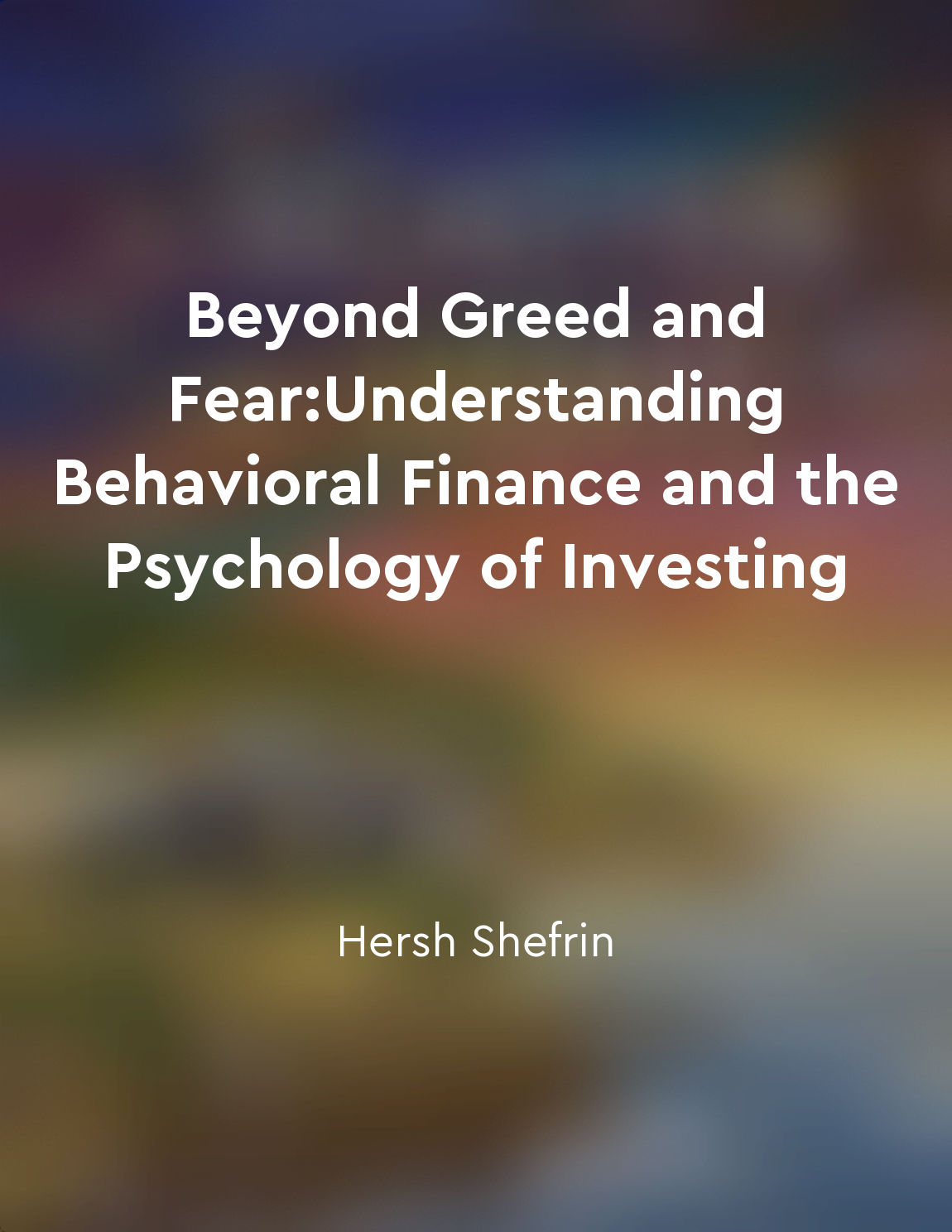Behavioral economics integrates psychology into economic analysis from "summary" of The Economics Book by DK
Behavioral economics is a field that combines the traditional principles of economics with insights from psychology. By understanding how people actually behave, rather than how they are assumed to behave in traditional economic models, behavioral economics provides a more realistic framework for analyzing economic decisions and outcomes. One key aspect of behavioral economics is the recognition that individuals do not always make rational decisions based on maximizing their own self-interest. Instead, people are influenced by a variety of factors, such as emotions, social norms, and cognitive biases, that can lead to behavior that deviates from the predictions of traditional economic theory. For example, individuals may be prone to making decisions based on heuristics...Similar Posts
No one is crazy
The concept that no one is crazy when it comes to money is a powerful idea that can help us better understand the decisions peo...
The cost of capital influences investment decisions
In making investment decisions, firms must carefully consider the cost of capital. This concept represents the return that inve...
Selfawareness is essential for financial self-control
To truly understand the concept of self-awareness being crucial for financial self-control, we must first recognize the intrica...
The value of understanding heuristics in decisionmaking
Understanding heuristics is a valuable skill in decision-making. Heuristics are mental shortcuts that allow us to make quick ju...
Fiscal stimulus can boost economic activity
In times of economic downturn, when private investment is low and unemployment is high, government intervention through fiscal ...
Economists use models to simplify complex economic systems and make predictions
Economists often face the challenge of analyzing complex economic systems that involve a multitude of factors and variables. To...

The concept of overreaction and underreaction in market movements
In the world of investing, market movements are often driven by the collective actions of investors. However, these movements a...
Loss aversion is a key concept in behavioral finance
Loss aversion, a central concept in behavioral finance, refers to the idea that individuals feel the pain of losses more intens...
Understanding how we choose can lead to better decisions
Understanding how we choose is a fundamental aspect of decision-making that can significantly impact the quality of the decisio...
Money stories shape our financial beliefs
Our financial beliefs are not formed in a vacuum. They are shaped by the stories we hear and experience about money. These stor...
